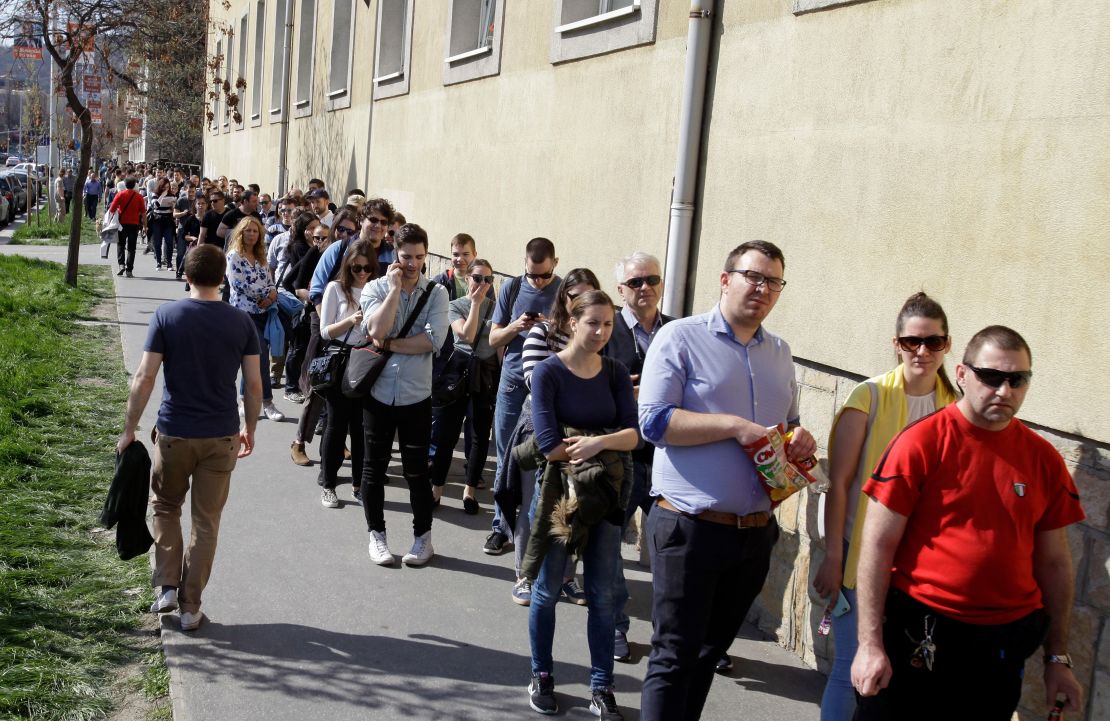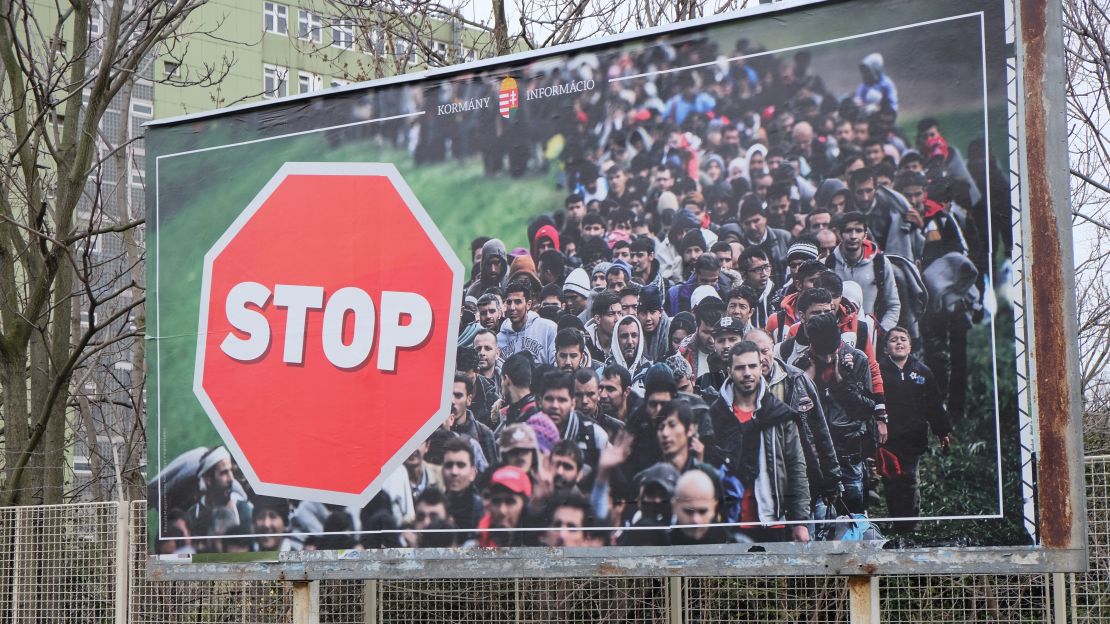Hungarian Prime Minister Viktor Orban claimed victory Sunday night in the country’s parliamentary election after campaigning on an anti-immigration platform.
With 92% of the vote counted, the coalition led by Orban’s ruling party, Fidesz, was projected to win 133 seats out of the 199 seats in Parliament, a supermajority according to the country’s National Election Office.
Orban, who will win his fourth term, is already Hungary’s longest-serving leader since the fall of communism in 1989. He has transformed Fidesz from a liberal party formed in the 1980s to a right-wing populist outfit.
The Fidesz-led coalition is in the lead with 48% of the votes, figures showed.
The right-wing opposition party Jobbik is in second place with 19.2 % of the votes, the National Election Office said. The party’s disappointing performance has prompted party president Gabor Vona to announce he will resign on Monday.
Orban claimed victory in an address to Fidesz supporters in Budapest. He and Fidesz were expected to be swept back into power.

Polls had showed Fidesz far ahead of Jobbik, which has recently sought to moderate its policies and image to differentiate itself from Fidesz as that party moved to the right.
Fidesz, in a coalition with the smaller Christian Democratic People’s Party, has held a two-thirds supermajority in Parliament for the past eight years, allowing it to change the constitution without a referendum.
The coalition has passed a slew of laws tightening regulations on the media, central bank, constitutional court and nongovernmental organizations. European Union leaders have warned those laws would undermine the country’s democracy.
Orban is a critic of the European Commission – the executive arm of the European Union – and has accused it of overreach in Hungary’s affairs, particularly in its attempt to impose a quota system that would have obliged Hungary to settle refugees.

The Hungarian government has set up anti-immigration billboards across the country, though it has the third-lowest level of immigration of the EU’s 28 countries.
Orban has sought to portray himself as a defender of Christian Europe against Islamic immigration. He has also railed against what he refers to as meddlesome international institutions, such as the United Nations and NGOs.
Orban has criticized the European Commission despite Hungary’s status as one of the largest recipients of EU development funds, which account for more than 4% of the country’s Gross National Income, according to EU budget figures.
CNN’s Angela Dewan and Hande Atay Alam contributed to this report.
